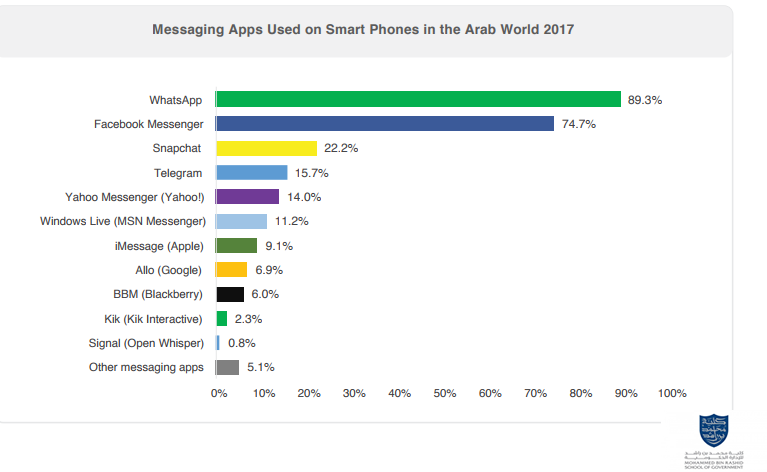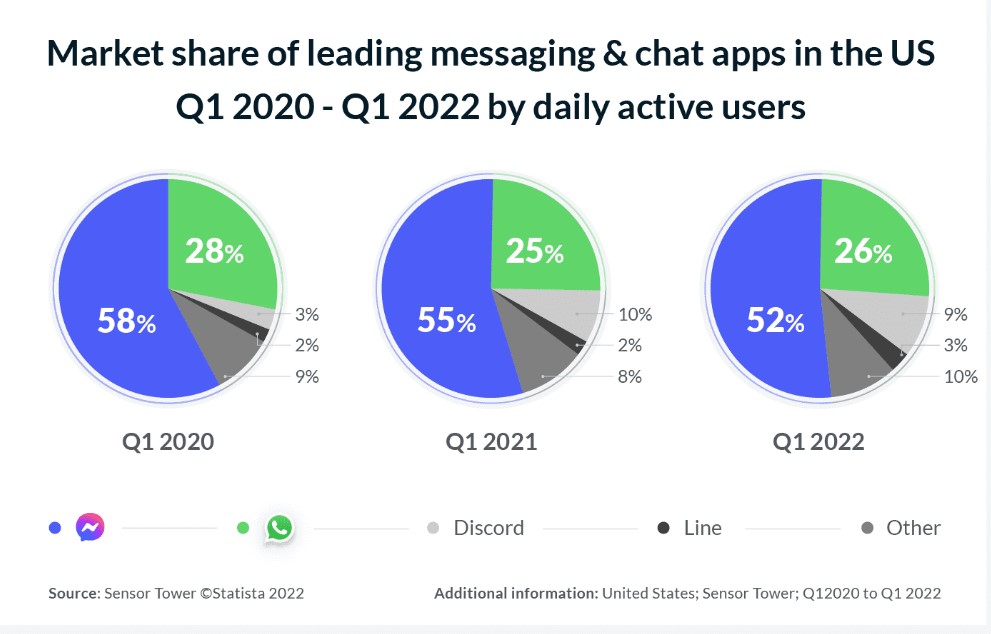The Statistics of WhatsApp Usage in the Arab World and the Us | Mbrsg & Bayt
Uncategorized | Arab World
Social networks and messaging apps both provide platforms for people to connect and share content. A messaging app acts primarily as a one-to-one (or -few) communication mechanisms it can be temporary or long-lasting. The leading messaging apps are engaged in an all-out arms race for user acquisition with WhatsApp claiming the most truly global presence, but most are successfully pushing into new markets and growing at incredible speeds.
WhatsApp is a messaging service that enables users to communicate with one another online through texting, calling, and sharing files, photos, and videos. Brian Acton and Jan Koum started it in 2009, and Facebook purchased it in 2014.
One of the most widely used messaging programs worldwide, WhatsApp has over 2 billion active users. It is freely accessible on desktop computers, Android, and iOS devices.
End-to-end encryption, which ensures that only the sender and recipient of a message can see its contents, is one of WhatsApp’s most noteworthy features. WhatsApp messages are therefore private and secure.
As long as both parties have an internet connection, WhatsApp users can make voice and video calls to other WhatsApp users in addition to its messaging capabilities.
Businesses utilise WhatsApp for client communication thanks to services like WhatsApp Business and WhatsApp Business API. These functions enable companies to set up a company profile, send automated messages, and offer customer support through the app.
Take a glance at the most used messaging apps in the Arab world:
- WhatsApp is the most used messaging application in the Arab region with a rate of 89.3%.
- Facebook messenger is ranked as the second most used application with a rate of 74.7%.
- Snapchat comes at next with a rate of 22.2%.

A Graph Shows The Most Used Messaging Apps in The Arab World, 2017.

This graph shows how much whatsapp is being used in 2020 to 2022
- In 2020, WhatsApp scored only 28% & messenger about 58%
- In 2021, WhatsApp usage in the US dropped to 25% & messenger about 55%
- In 2022, Whatsapp usage became a bit higher scored about 26% & messenger about 52%






